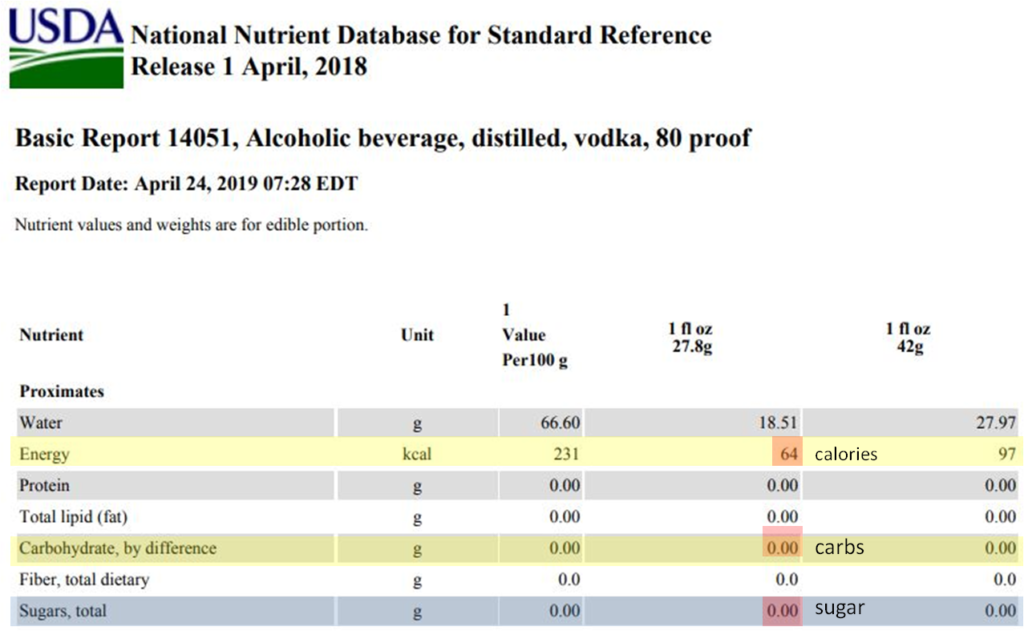I find it somewhat odd speaking about sugar-based vodka. After all, all vodka is sugar-based. They don’t all start out that way, but to create alcohol through fermentation, yeast needs sugar to make ethyl alcohol.
Sugar-Based Vodka – What does it Mean?
In the U.S. and elsewhere vodka is legally defined as ethyl alcohol, plain and simple. It’s known as a neutral spirit or rectified spirit. Neutral spirit is defined as a highly concentrated ethyl alcohol (ethanol) derived from any various agricultural products that contain sugars or can be converted into fermentable sugars. The ethanol is highly concentrated and purified by repeated distillation.
So why do some vodka distillers start out with grains or potatoes when they have to convert the starches in those materials into fermentable sugars? Why not just use simple sugars like cane sugar? That would seem to be the simplest approach, but yet many producers stay with the traditional grains and potatoes.
How Much Sugar is Left in the Vodka?
None! Vodka is ethanol and water. No sugar, carbs, fats, fiber, vitamins or cholesterol. Just because we start out as a sugar-based vodka, that does not mean there is sugar in your vodka. This is a common misconception. The sugars are converted to alcohol during fermentation. So you need not worry that sugarcane vodka contains sugar…it doesn’t! However, a 1.5 ounce serving of vodka contains approximately 95 calories.
There may be no right answer to that question. However, many distillers simply follow traditional recipes. Centuries ago in Eastern Europe and Russia where vodka was born, the only agricultural products available at the time were grains and potatoes. Pure cane sugar would have been an obscenely expensive method of producing vodka.

Source: USDA
Legal Definition of Vodka
Many people will still argue that the base material used to make vodka will alter its “taste” or consistency. We do not agree. The very legal definition of vodka in the U.S. makes that essentially illegal…The Alcohol and Tobacco Tax and Trade Bureau (TTB) states that vodka must be ” Neutral spirits distilled or treated after distillation with charcoal or other materials so as to be without distinctive character, aroma, taste or color,”
The TTB is a division of the U.S. Department of the Treasury that oversees regulation of the production and distribution of alcohol. We have discussed this in detail in another article where we ask, “are all vodkas are created equal”.
From our perspective sugar-based vodka means starting out with pure, organic, non-GMO, fair trade cane sugar. The granulated sugar is easily dissolved in filtered water. After the sugar is dissolved, yeast is added to create a pure sugar wash and fermentation begins. No by-products, no added enzymes and no significant methyl alcohol is produced during fermentation as with grain and potato-based fermentation.
We start with a cleaner, minimalist and purer set of ingredients and we finish with a crystal-clear vodka that is unmatched by any other process. There are only three ingredients in felənē vodka: organic sugar, water and yeast. The result is a superb sugar-based vodka that contains no congeners. This spirit is now ready for charcoal filtering and blending to achieve the finest 80 proof vodka available anywhere.
There is no need for additives or smoothing agents like citric acid like 95% of the commercial brands use to mast their bitterness. Actual sugar-based vodka will simply be a cleaner and smoother experience than its grain or potato counterparts. It is also gluten-free like virtually all vodkas.




You must be logged in to post a comment.